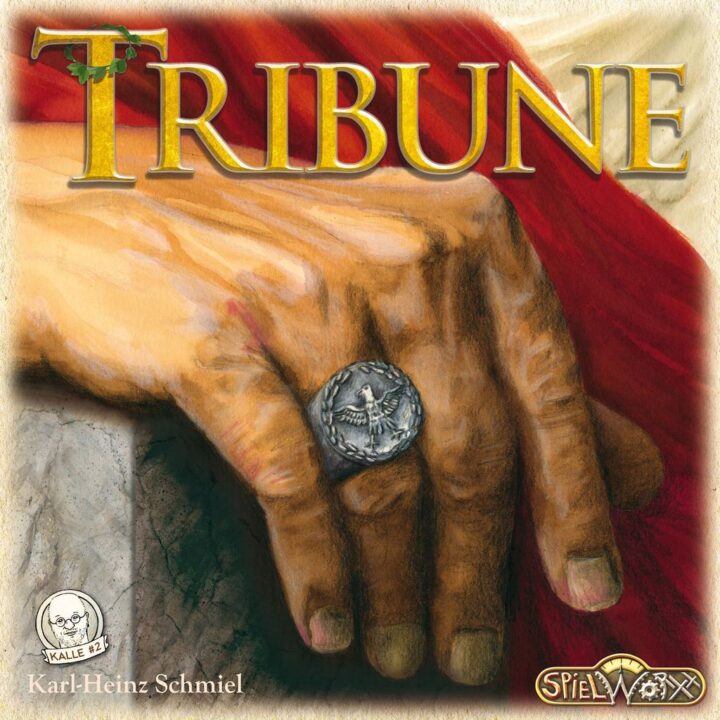Overview
Welcome to my review of Tribune, a game that proves to be a fascinating exploration into the blend of strategic depth, player interaction, and the innovative variations in winning conditions. Through the course of this review, I’ll delve into the mechanics of Tribune, emphasizing those aspects that make it a standout board game. Engage with us as we dissect its elements to understand why it garners much praise from enthusiasts around the globe.
How It Plays
Tackling Tribune means diving into a gratifying mix of strategy, social interaction, and diverse winning conditions. Our play sessions illuminated how these elements fuse to create an engrossing experience.
Setting Up
To set up Tribune, each player chooses a faction and receives corresponding components. The board, adorned with various tracks and areas for cards, factions, and rewards, is prepped with resources, cards, and tokens based on player count, ensuring no two games start identically.
Gameplay
During gameplay, participants vie for influence, strategically placing their faction members across the board’s locations. Decision-making, influenced by others’ actions and the ever-shifting power dynamics, is critical. Leveraging unique faction abilities and anticipating opponents’ moves becomes a delicate dance of wits.
Winning the Game
Winning Tribune requires a blend of achieving personal objectives and adapting to the evolving game state. Players must secure various victory points or fulfill specific conditions, emphasizing the game’s strategic depth and balance. Ultimately, mastering Tribune demands not just keen strategy but adept player interaction and a flexible approach to the diverse winning conditions.
Want to know more? Read our extensive strategy guide for Tribune.
A Deep Dive into Strategy
In my journeys through board gaming, I’ve stumbled upon games where strategy depth and balance swing wildly, often making or breaking the experience. Tribune stands out in this sea for its finely-tuned mechanism. Each session feels like a new challenge, with strategies needing sharp adaptation to the ever-changing board state.
Choice and Complexity
The myriad of paths to victory in Tribune ensures that no two games feel the same. This complexity forces players to think several moves ahead, always on their toes. Yet, it maintains a delicate balance, preventing any one strategy from dominating.
Adaptation is Key
Adaptation becomes the heart of the game. My friends and I have found ourselves revising strategies mid-game, a testament to Tribune’s dynamic gameplay. Each choice you make can shift the balance, keeping everyone engaged until the last card is played.
Let’s see how these strategies translate into player interaction and dynamics in the next section.

Building Alliances and Rivalries
In my Tribune gameplay sessions, player interaction took center stage. The Tribune Review often highlights how the game’s social mechanics are crucial. From forming tentative alliances to executing timely betrayals, they bring a thrilling dimension.
Collaboration Is Key
Strategizing together, players find moments of camaraderie. Whether it’s a shared victory or a mutual defeat, these interactions forge stories worth telling.
Dynamic Rivalries
The tides of competition and cooperation ebb and flow, creating memorable gaming sessions. It’s this dance of dynamic rivalries that keeps the gameplay engaging, pushing players to adapt continuously.
Next, let’s dive into the intriguing variations of winning conditions in Tribune, adding another layer to its brilliance.
Varying Paths to Victory
In my explorations through the world of Tribune, one aspect continually stands out: the richness afforded by its winning conditions. This diversity translates into highly strategic planning, where no two games ever feel the same. Everyone at the table might have a vastly different approach to victory, which adds a delicious tension to each session.
Flexibility in Strategy
Variety isn’t just the spice of life; in Tribune, it’s the heartbeat of gameplay. Whether pursuing political dominance, controlling wealth, or acquiring favor from the gods, these avenues present players with bountiful strategies to explore and master.
Adapting to Opponents
Part of the beauty here lies in adapting your tactics based on others’ moves. This dynamic makes each play-through a unique narrative teeming with alliances, betrayals, and unexpected comebacks. It’s why Tribune frequently finds its way back to my gaming table.
Wholeheartedly recommending it ends up being an understatement.
Conclusion
In wrapping up this review, Tribune stands out as a compelling board game that masterfully intertwines strategic depth with player interaction, offering a diverse array of winning conditions. Its well-crafted mechanics encourage thoughtful planning and dynamic play, making each game a unique experience. The balance between strategy and social engagement ensures that it appeals to a wide range of players, fostering memorable moments and lively discussions. Whether you’re a seasoned gamer looking for a challenge or someone eager to explore the social dynamics of board gaming, Tribune delivers on all fronts. Given its strengths in strategy, interaction, and game design, Tribune comes highly recommended for those looking to add an engaging and robust title to their gaming collection.

